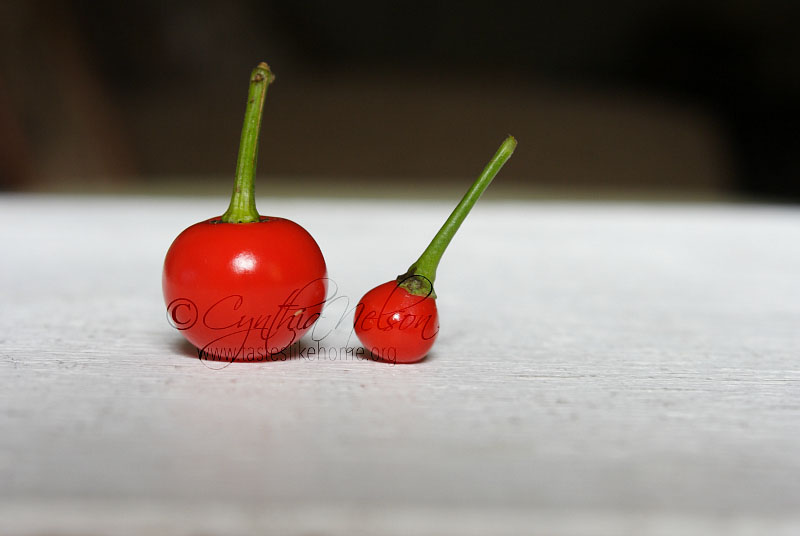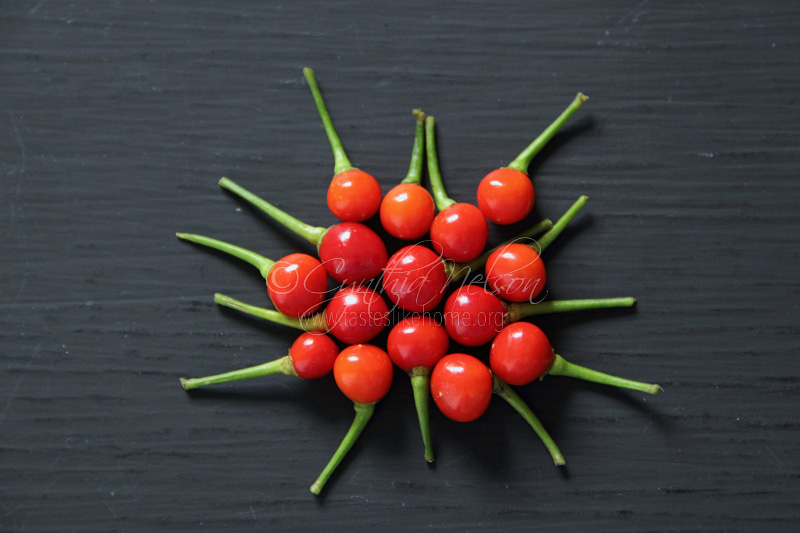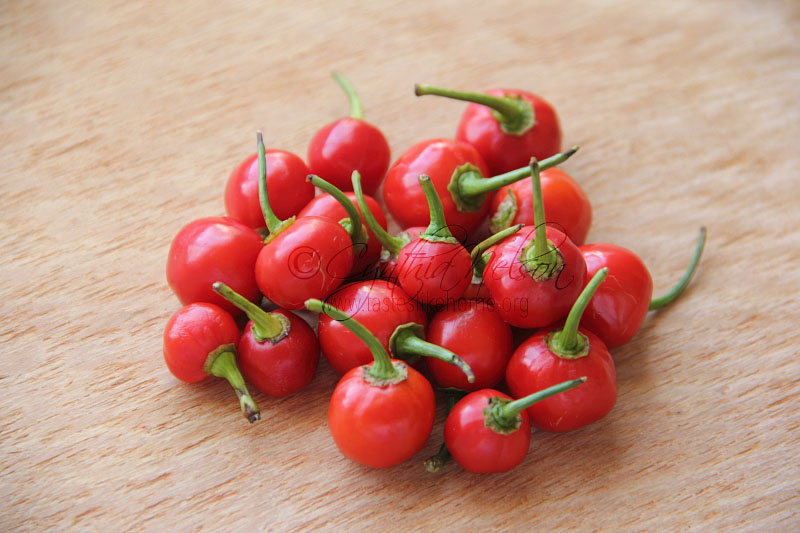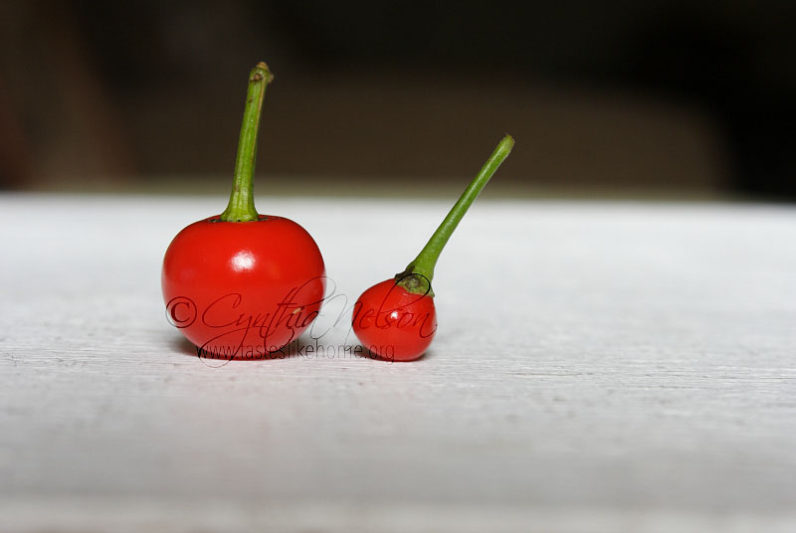Hi Everyone, This week begins a 3-part series on hot peppers that are currently enjoying a bountiful season.
Guyana is known for a small round shiny pepper that’s packed with a unique floral-fruity flavour, and distinct aroma. It is called Wiri Wiri. While the origin is unknown, these tiny berry-like peppers have been grown and consumed in Guyana for as long as anyone can remember. For heat seekers, cooks, and home gardeners, it is a taste of home. However, for many years now, a larger, round, and equally shiny pepper has piled up in trays and baskets across markets masquerading as Wiri Wiri, but it is not the Wiri Wiri pepper, it is a pepper called Maiwiri.
The Maiwiri pepper differs in flavour and is much higher on the heat scale than the Wiri Wiri.
The Maiwiri pepper is also sold in Barbados as Wiri Wiri. This “new” Wiri Wiri has long perplexed me, not so much because of the differing flavour but the sheer size and heat level.
As a child I remember my mother putting the finishing touches to her stuffed (devilled) eggs with small Wiri Wiri peppers, if there were any she considered too large, they would be halved. The stuffed eggs would be eaten peppers and all. I could not fathom how one would stud a stuffed egg with one of these “new” Wiri Wiri peppers. Something was not right. What happened to the real Wiri Wiri peppers? I wanted answers. I turned to the Chief Executive Officer of the National Agricultural Research and Extension Institute (NAREI) in Guyana, Dr Oudho Homenauth.
Dr Homenauth explained the Wiri Wiri pepper is still being cultivated in Guyana but on a much smaller scale. He believes that this reduction in growth has to do with the time it takes to harvest the peppers (volume wise). The Maiwiri he said is much easier to harvest. In other words, the Maiwiri pepper grows at a faster rate and produces a larger yield. A larger yield of the Maiwiri is much more profitable than the Wiri Wiri. Using Barbados as a reference, a packet containing 10 – 14 Maiwiri peppers sells for Bds$2. (US$1), a packet of Wiri Wiri pepper would need to be 3 to 4 times that quantity to yield the volume for that price. It is therefore easy to see why the Maiwiri has replaced the Wiri Wiri, the Queen of peppers among Guyanese.
While economics is important, so too are heritage foods. The reduction in cultivation of Wiri Wiri peppers, the scarcity and demand for it at home and elsewhere firmly marks it as a heritage food, the seeds – heirloom.
Several months ago, on one of my Saturday morning outings to the weekly market in Barbados, amidst the little bags full of brightly coloured red, orange and yellow Maiwiri peppers, I found a small bag of tiny red round peppers… could it be the real deal? Wiri Wiri peppers? I lifted the bag and looked enquiringly at the vendor, she said, “Girl, somebody bring a couple bags for me to sell. You get the last one.” I happily paid the Bds$3 demanded, grateful at last to have Wiri Wiri peppers. I consumed most of it in a week’s time, keeping a few to dry so that I could save the seeds for planting. These days, I do not have to worry about getting Wiri Wiri peppers; I have my own Wiri Wiri pepper plants.
The most appealing thing (to me) about Wiri Wiri pepper is the flavour, therefore, I prefer to use it raw rather than cooked. The flavour enhances whatever the pepper is added to. Finely minced, I add Wiri Wiri pepper to sandwich spreads, dips, fresh salsas, sliced cucumbers with lime juice and a pinch of salt, or puree it with tomato juice for spicy Margaritas.
The other day I found myself making stuffed eggs just so that I could garnish them with Wiri Wiri.
The Maiwiri pepper, its origins unknown, has made a permanent home on our plates and palettes. It is an excellent pepper in its own right, and is one of my favourites for making pepper sauce. Even though Maiwiri may rule the day, there will always be a place of prominence for the much beloved Wiri Wiri pepper.
Next week: Chocolate Habanero and Bhut Jolokia (Ghost Pepper)
Cynthia










